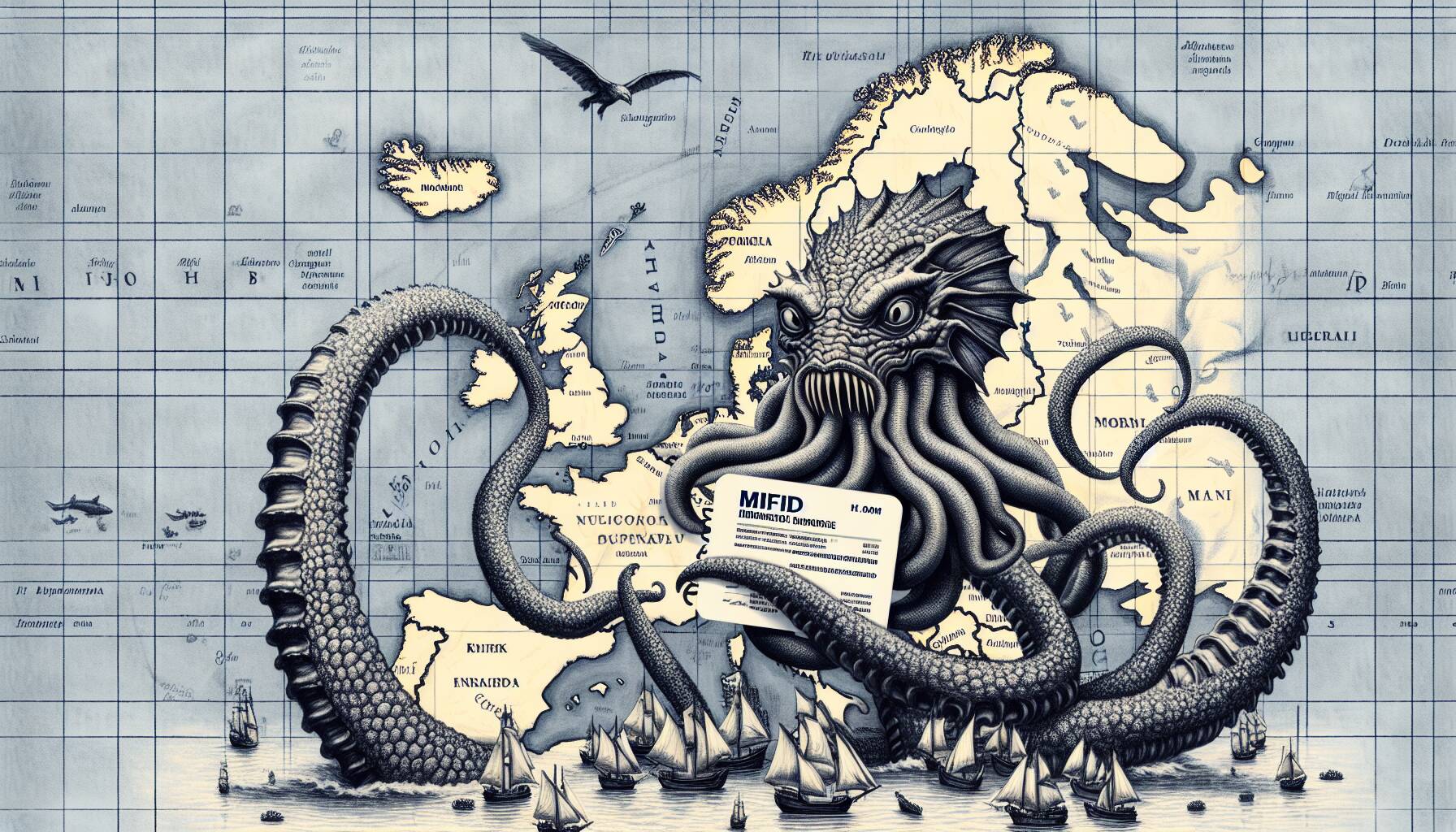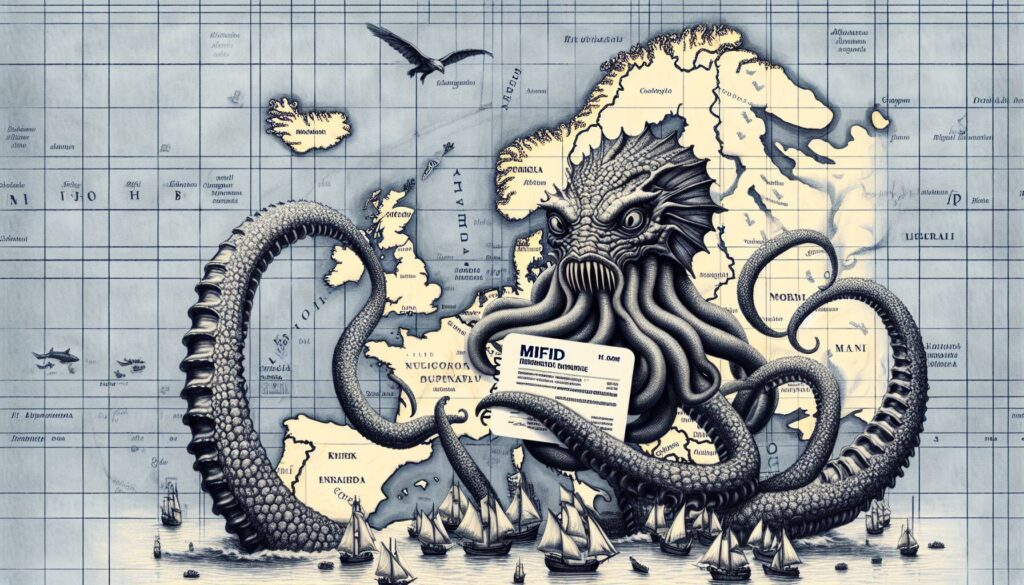In a significant move for the cryptocurrency landscape in Europe, the well-known crypto exchange Kraken has secured a prestigious Markets in Financial Instruments Directive (MiFID) license. This development marks a pivotal step for Kraken, allowing it to offer crypto derivatives products across the European Union’s 27 member nations. The company achieved this milestone by acquiring a Cypriot investment firm that already held the license from the Cyprus Securities and Exchange Commission (CySEC).
“In the coming months, we will work on meeting the conditions to go live and launch the products in local EU markets,” Kraken stated in a blog post, outlining its plans to roll out new offerings to European customers. The acquisition aligns with Kraken’s broader expansion strategy within the region, positioning the exchange alongside industry players like Bitstamp and FTX EU, the latter of which was recently bought by BackPack, both of which also hold the MiFID license.
“We believe this license will enable us to better serve our clients in Europe, providing them with more options and flexibility,” the company emphasized.
This latest development comes on the heels of Kraken’s previous acquisition of Crypto Facilities in 2019, a U.K. FCA-regulated crypto futures platform, further solidifying its footprint in the rapidly evolving world of digital finance. As Kraken works to fulfill requirements for operational readiness, the exchange is set to enhance the landscape of cryptocurrency trading and investment throughout Europe.

Kraken Secures MiFID License: Implications for the Cryptocurrency Market
Kraken’s recent acquisition of a MiFID license allows it to operate within the European Union, which can have significant implications for both investors and the broader cryptocurrency landscape.
- Acquisition of Cypriot Investment Firm
- This strategic move enables Kraken to offer crypto derivatives products across 27 EU nations.
- Expansion into European Markets
- Kraken is expanding its services in the EU, joining exchanges like Bitstamp and the recently acquired FTX EU.
- Regulatory Compliance
- The MiFID license signifies a commitment to regulatory standards, potentially increasing trust among investors.
- Future Product Launches
- Kraken will be working on meeting regulatory conditions to launch these products, which could enhance trading opportunities for users.
- Acquisition of Crypto Facilities
- In 2019, Kraken acquired a U.K. FCA-regulated crypto futures platform, indicating a long-term strategy for growth in regulated markets.
“In the coming months, we will work on meeting the conditions to go live and launch the products in local EU markets.” – Kraken’s blog post
Understanding these developments can impact readers’ investment decisions and highlight emerging opportunities in the increasingly regulated cryptocurrency space.
Kraken’s MiFID License: A Competitive Leap in the European Crypto Landscape
In the ever-evolving world of cryptocurrency exchanges, Kraken’s acquisition of a Markets in Financial Instruments Directive (MiFID) license marks a significant milestone. By taking control of a licensed Cypriot investment firm, Kraken is positioned to offer crypto derivatives products within the European Union’s 27-member bloc. This strategic move places Kraken in direct competition with other established players like Bitstamp and the recently revived FTX EU, which was purchased by BackPack. Both competitors have laid a solid foundation in compliance and regulatory frameworks, but Kraken’s agility in securing this license could provide them with a competitive advantage.
One of the primary advantages of Kraken’s new license lies in its ability to expand its product offerings in a regulated environment, catering to a growing demand for crypto derivatives in Europe. This move not only boosts Kraken’s credibility but also enhances trust among institutional investors, who are increasingly seeking compliant platforms for their trades. Furthermore, Kraken’s history of acquiring Crypto Facilities, a U.K. FCA-regulated futures platform, showcases its commitment to building a robust operational framework that supports regulatory demands.
However, alongside these advantages, Kraken may face challenges in executing its ambitious plans. The process to meet the conditions required to go live will require significant resources and time, potentially delaying its entry into the market. As competitors like Bitstamp and FTX EU already have established operations, Kraken’s late entry into the derivatives market could hinder its efforts to capture market share quickly.
This development could profoundly benefit a range of stakeholders. Institutional investors, in particular, are likely to appreciate the enhanced compliance assurances that a MiFID license brings. Additionally, retail investors in the EU may gain access to a wider variety of financial products, fostering greater participation in the crypto trading landscape. Conversely, firms that fail to adapt to stricter regulatory environments may find themselves at a disadvantage, potentially losing market share to Kraken and its peers who can offer compliant services.
Overall, while Kraken’s MiFID license acquisition opens doors for expansion and enhances its competitive standing, it also emphasizes the critical nature of regulatory adherence in an increasingly scrutinized industry. The next few months will be telling as Kraken navigates the conditions required to activate its new offerings, and the outcomes of this initiative will likely influence the broader crypto exchange market in Europe.
















